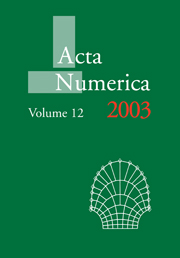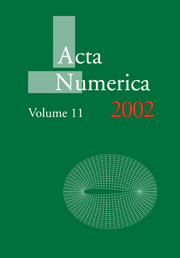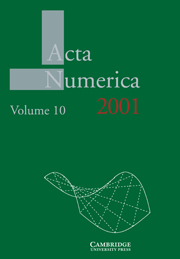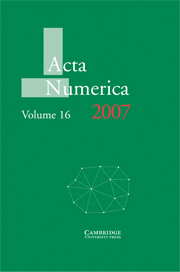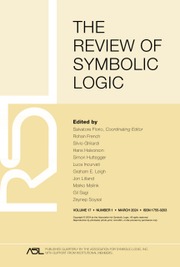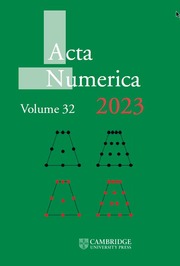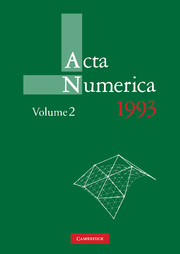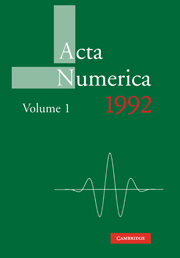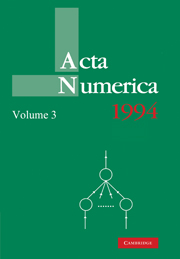Acta Numerica 2003
Acta Numerica surveys annually the most important developments in numerical mathematics and scientific computing. The subjects and authors of the substantive survey articles are chosen by a distinguished international editorial board so as to report the most important and timely developments in a manner accessible to the wider community of professionals with an interest in scientific computing. Acta Numerica volumes have proved to be a valuable tool not only for researchers and professionals wishing to develop their understanding of numerical techniques and algorithms and follow new developments, but also as an advanced teaching aid at colleges and universities. Many of the original articles have been used as the prime resource for graduate courses. This particular volume was originally published in 2003.
- Reports developments in numerical analysis and scientific computing
- Written in a style accessible to graduate students and researchers
- Authors have made notable contributions to the development of their topic
Reviews & endorsements
Review of the hardback: 'Acta Numerica is a fine achievement and I think we can expect to see it for many years to come. It sets itself laudable and important goals and has, to a large extent, achieved them. I believe that the volumes are of enormous benefit to our subject … The editorial board should be applauded for having the vision and drive necessary to create and sustain such a high quality publication … No mathematics library is complete without this annual publication, and I urge everyone working in numerical mathematics and scientific computing to read it.' Andrew Stuart, SIAM Review
Review of the hardback: 'The quality of exposition and editing is extremely high.' Z. Angew, Math. Mech
Product details
August 2011Paperback
9780521174312
520 pages
244 × 170 × 26 mm
0.82kg
Available
Table of Contents
- 1. Meshless methods Ivo Babuvska and John Osborn
- 2. Viscosity methods Bernardo Cockburn
- 3. Computational optics Bjorn Engquist and Olof Runborg
- 4. Model reduction methods Roland Freund
- 5. Computational financial mathematics Jonathan Goodman
- 6. Automatic differentiation Andreas Griewank
- 7. Numerical geometric integration Ernst Hairer, Christian Lubich and Gerhard Wanner
- 8. Numerical stability theory for PDEs Eitan Tadmor.

